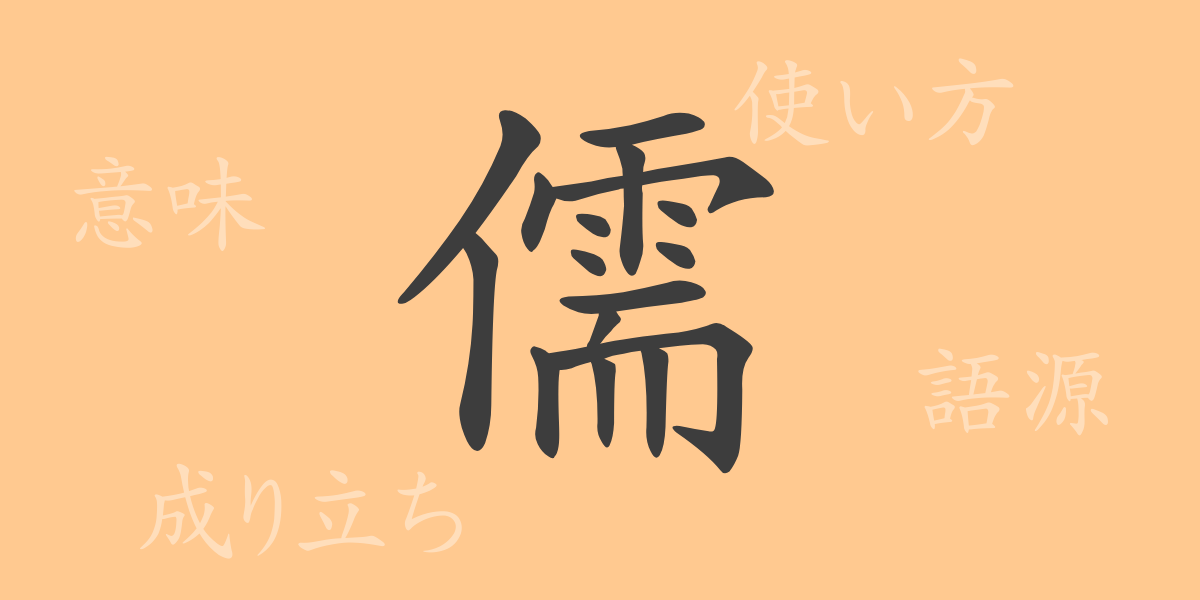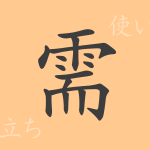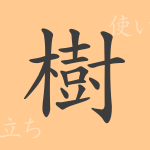The beauty of the Japanese language is greatly expressed through its complex and meaningful kanji characters. This time, we spotlight the commonly used kanji “儒(じゅ)” and delve into its origins, meanings, usages, as well as related idioms and proverbs. By exploring the history and philosophy embedded in each kanji, we can deepen our understanding of the richness of the Japanese language and culture.
Origin of 儒(じゅ) (Etymology)
The kanji “儒(じゅ)” originates from ancient Chinese seal script. Initially, it was written as “需(じゅ),” symbolically representing a person showing reverence. Later, scholars such as Confucius used this character to denote specific philosophies or studies. This marked the beginning of the Confucian school of thought, and “儒(じゅ)” came to refer to scholars who teach morals and ethics.
Meaning and Usage of 儒(じゅ)
The kanji “儒(じゅ)” is primarily used in contexts related to Confucianism. Confucianism is a traditional ethical and philosophical system from China that has significantly influenced the East Asian cultural sphere, including Japan. Specifically, it refers to people who adhere to Confucian teachings, value morality and propriety, or scholars and experts who specialize in such studies. Known as “儒者(じゅしゃ),” it is used to denote knowledge and sophistication.
Readings, Stroke Count, and Radical of 儒(じゅ)
The kanji “儒(じゅ)” holds a special place in Japanese linguistic culture, both in terms of its readings and structure.
- Readings: The on’yomi (音読み) is “ジュ,” and there is no kun’yomi (訓読み).
- Stroke count: “儒(じゅ)” consists of 16 strokes.
- Radical: The radical is 人(にんべん), related to people.
Idioms, Phrases, and Proverbs Using 儒(じゅ)
Idioms and phrases containing “儒(じゅ)” often relate to knowledge and learning. Here are a few examples:
- 「儒学(じゅがく)」: The academic and educational system based on Confucianism.
- 「儒教(じゅきょう)」: The traditional Chinese philosophical and ethical system founded by Confucius.
- 「儒者(じゅしゃ)」: Scholars or experts who study and practice Confucian teachings.
Conclusion on 儒(じゅ)
The kanji “儒(じゅ)” transcends mere characters, bearing deep historical and cultural significance. The ethics and morals shaped by Confucian teachings continue to influence contemporary Japanese society, affecting people’s behaviors and values. Understanding the impact of a single kanji like “儒(じゅ)” not only deepens our comprehension of the Japanese language but also offers insights into Japanese culture.

























